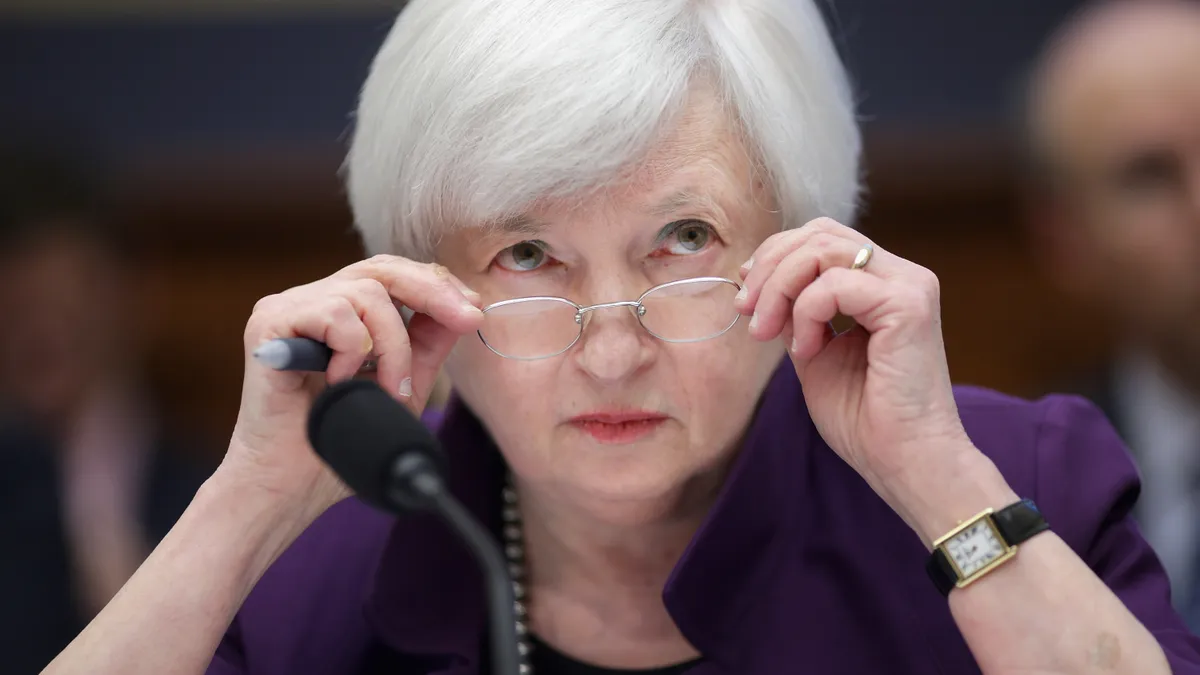The recent banking crisis, punctuated by the failures of Silicon Valley Bank and Signature Bank, have revealed “cracks in the regulatory perimeter” that must be addressed, Treasury Secretary Janet Yellen said Thursday, noting that deregulation “may have gone too far.”
Yellen’s remarks at the National Association for Business Economics conference in Washington, come a day after officials from the Federal Reserve, Federal Deposit Insurance Corp. and Treasury testified to lawmakers on their understanding of the bank collapses.
“Regulatory requirements have been loosened in recent years,” Yellen said Thursday. “I believe it is appropriate to assess the impact of these deregulatory decisions and take any necessary actions in response.”
Trump-era rollbacks of Dodd-Frank Act provisions, particularly by the Federal Reserve, have drawn criticism from several Democratic lawmakers.
It’s "important that we reexamine whether our current supervisory and regulatory regimes are adequate for the risks that banks face today,” Yellen said Thursday.
Banks were a “pillar of strength” for the financial system at the onset of the COVID-19 pandemic, she added, but SVB and Signature’s failures “demonstrate that our business is unfinished.”
With that said, the collapses of SVB and Signature didn’t trigger a “financial meltdown” comparable to the financial crisis of 2008, Yellen said. In both cases, though, the government had to “deliver substantial interventions to ease the pressure on certain parts of the financial system” — signaling that “more work must be done.”
Yellen said the relative stability of the overall sector demonstrates its strength in comparison to 2008, but it remains a “cause for serious concern” anytime a bank fails.
In her speech, Yellen criticized the increased role of “shadow banks,” nondepository financial companies that carry out traditional banking functions. The amount of credit provided by nonbanks has more than doubled since 1985, she said. Nonbanks were hard hit by the COVID pandemic, which “reaffirmed the significance of structural vulnerabilities in nonbanks.”
She also singled out money market funds, saying they are particularly vulnerable to runs and fire sales, and took aim at hedge funds and digital assets.
“Financial stability is a public good,” Yellen said. “Government plays a fundamental role in the provision of financial stability, as the costs of systemic failure are externalized to the broader society.
“At Treasury, we take this responsibility very seriously,” Yellen added. “Now, our duty as policymakers is to respond.”












